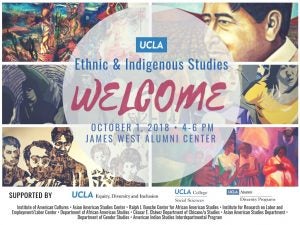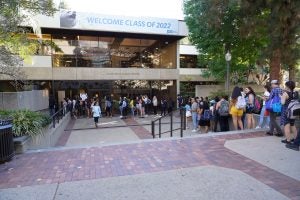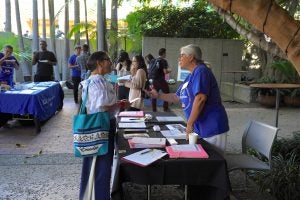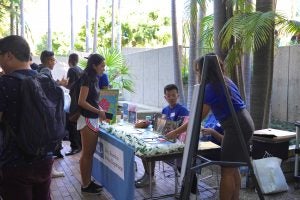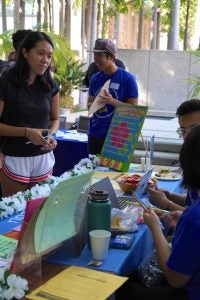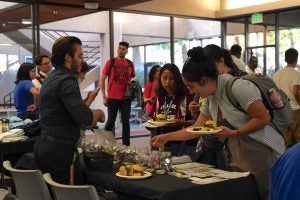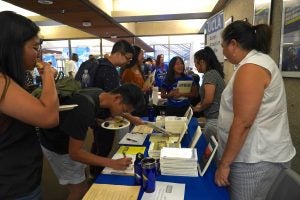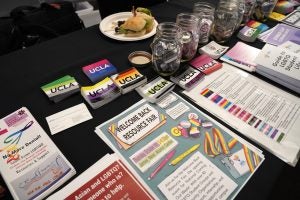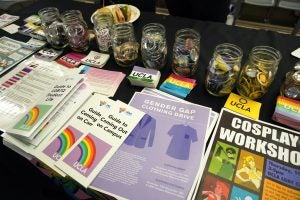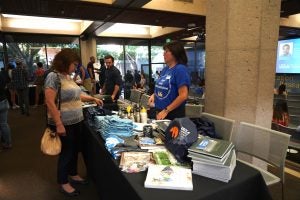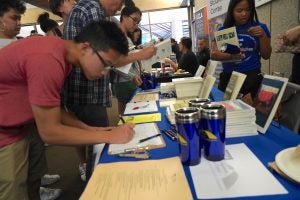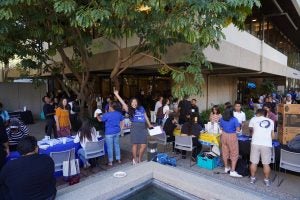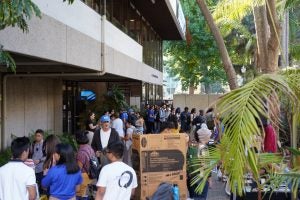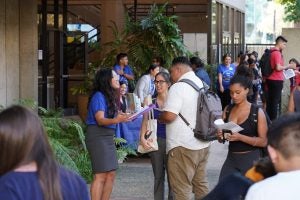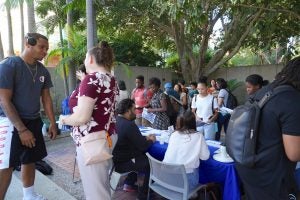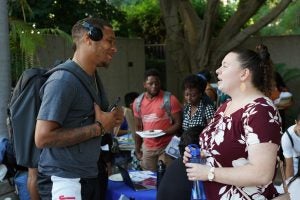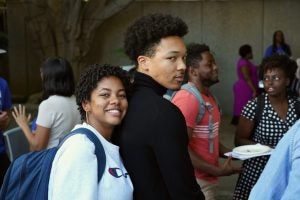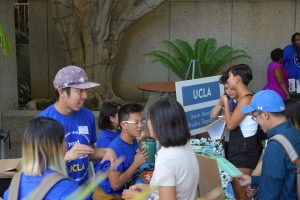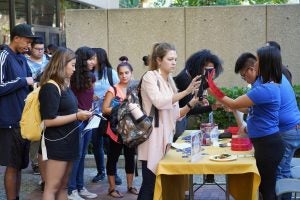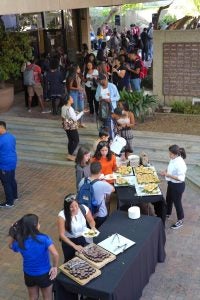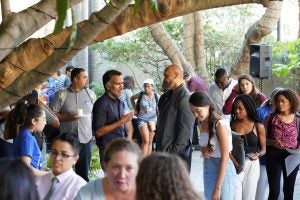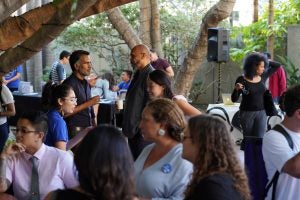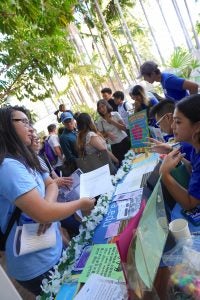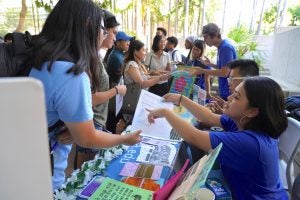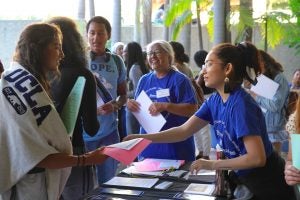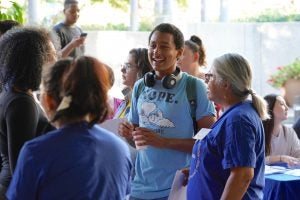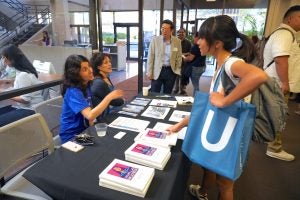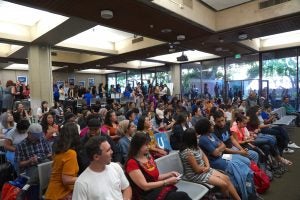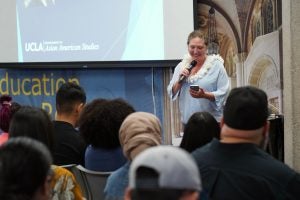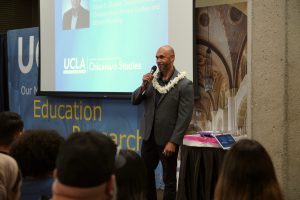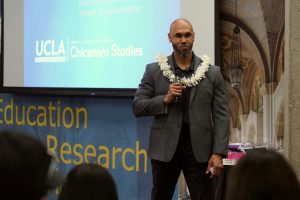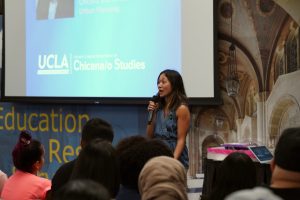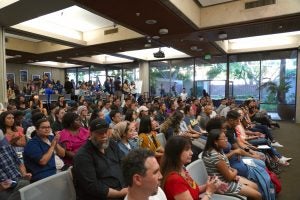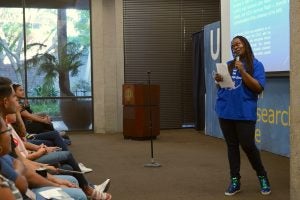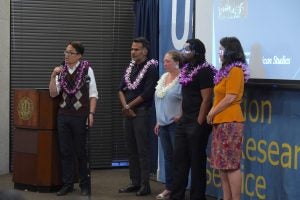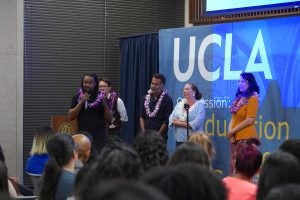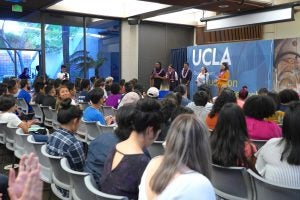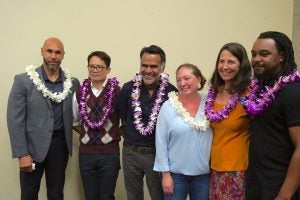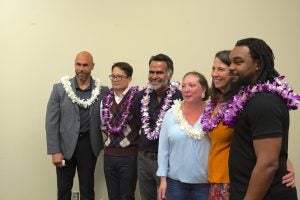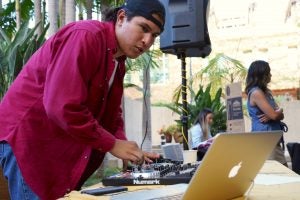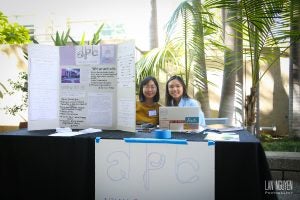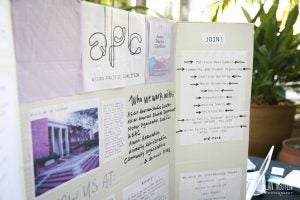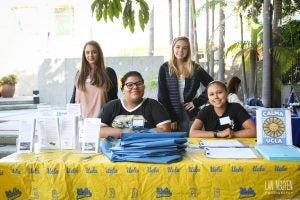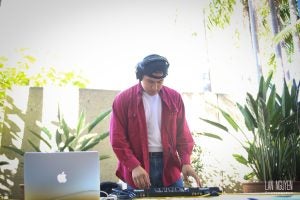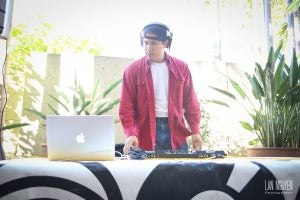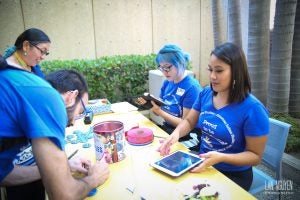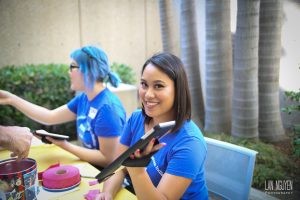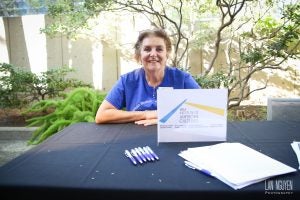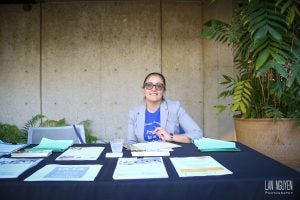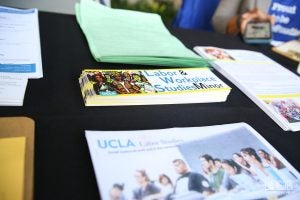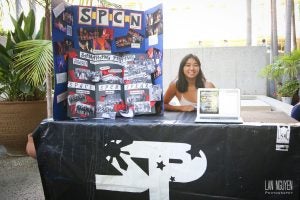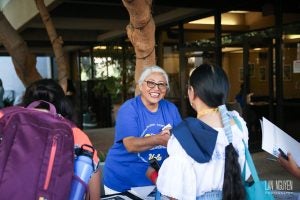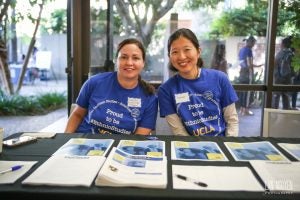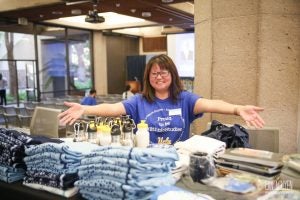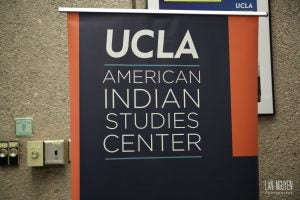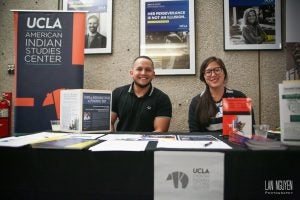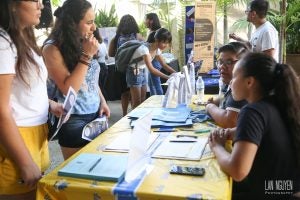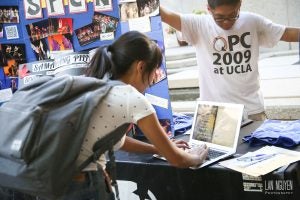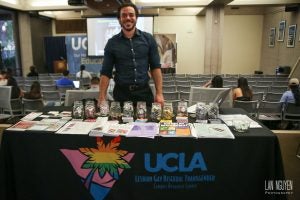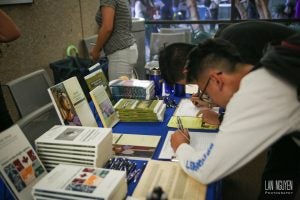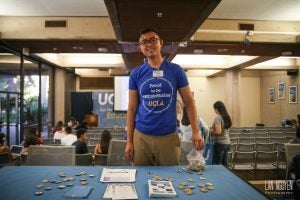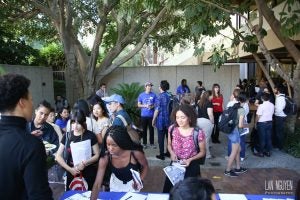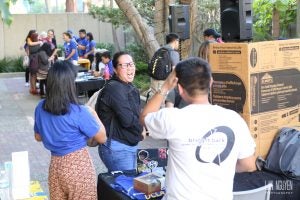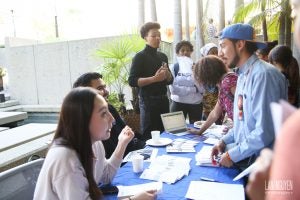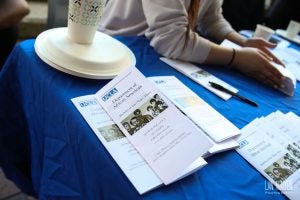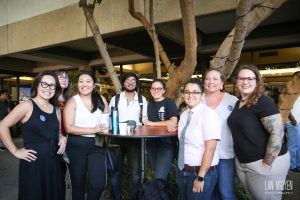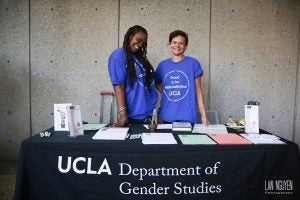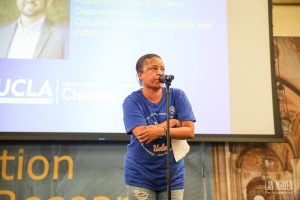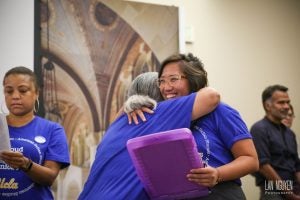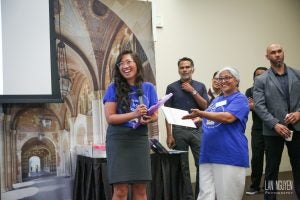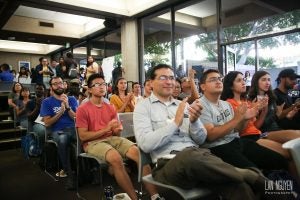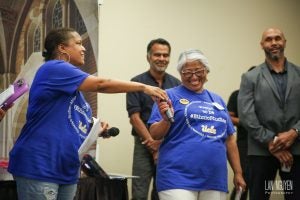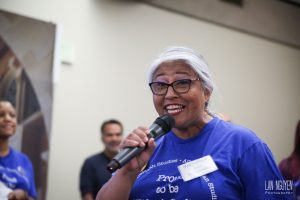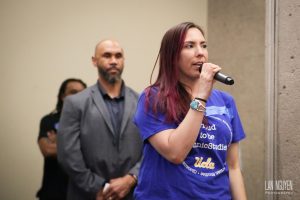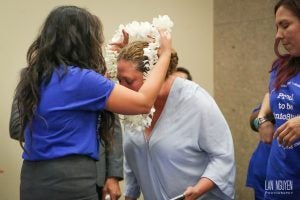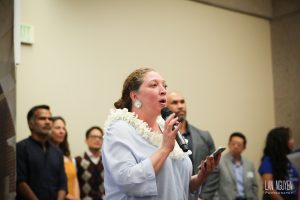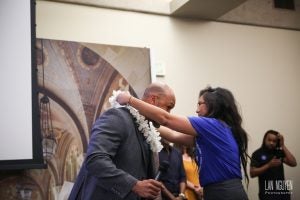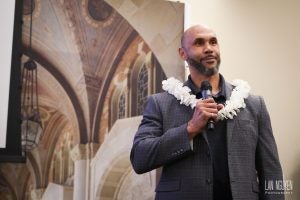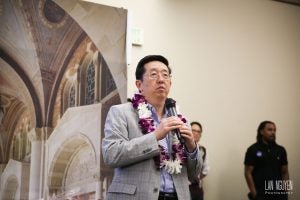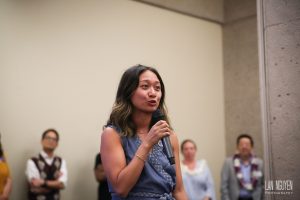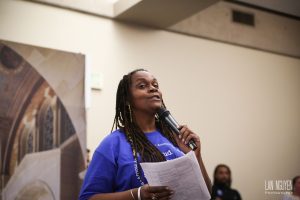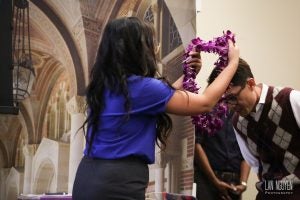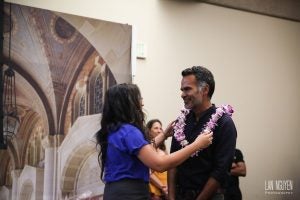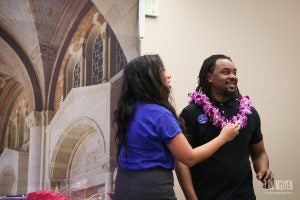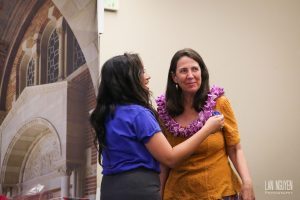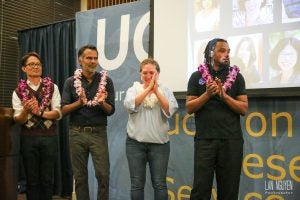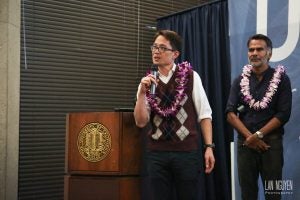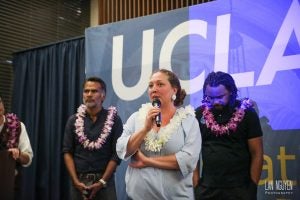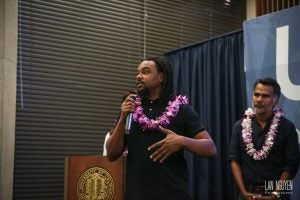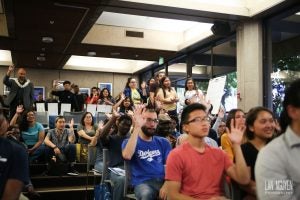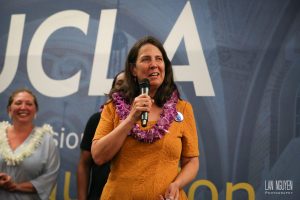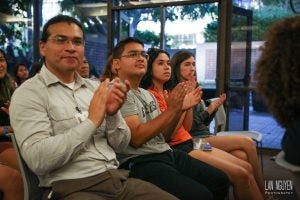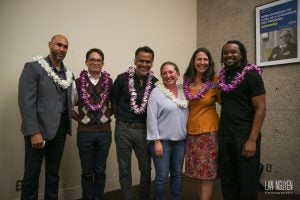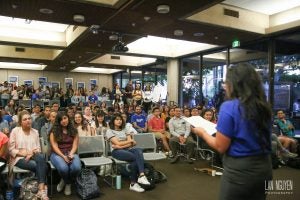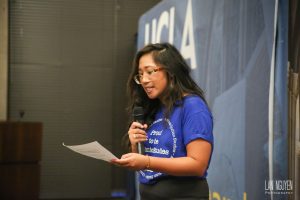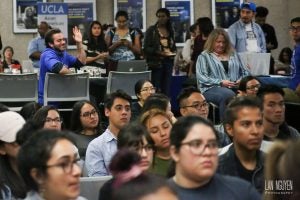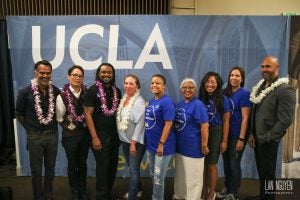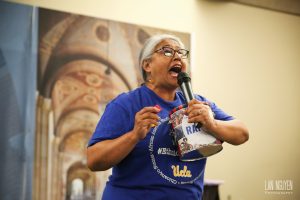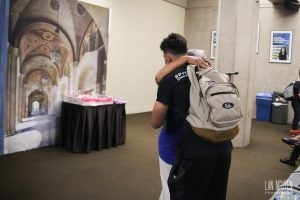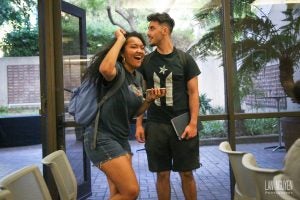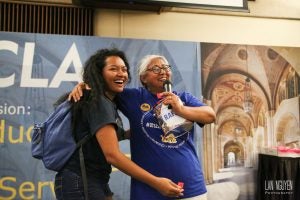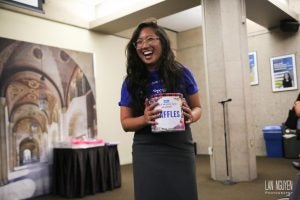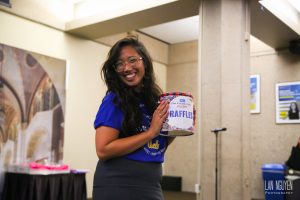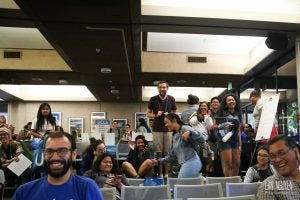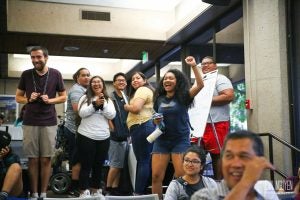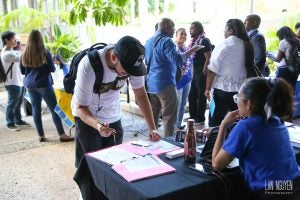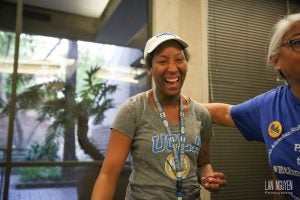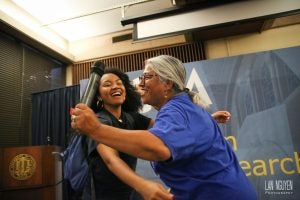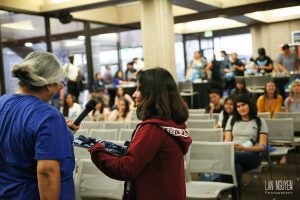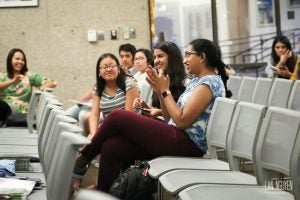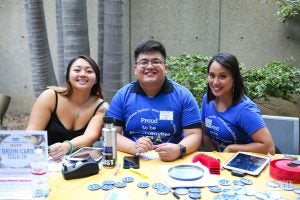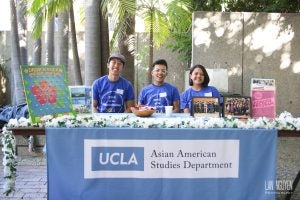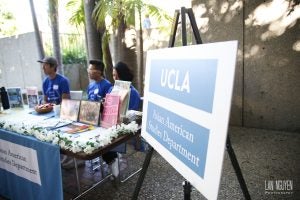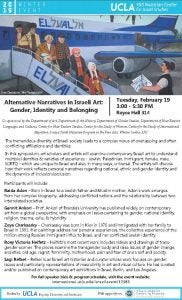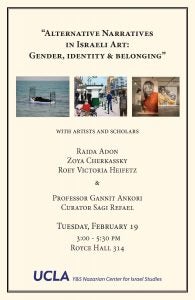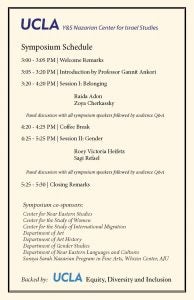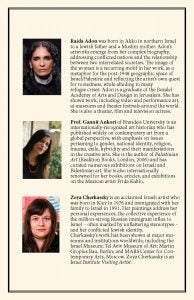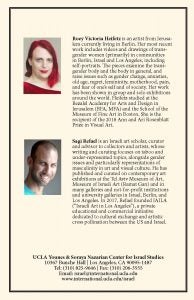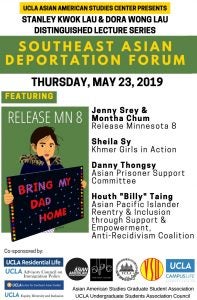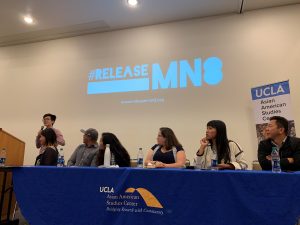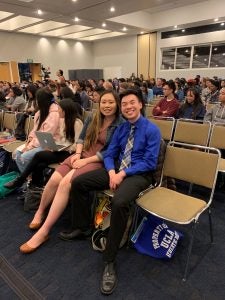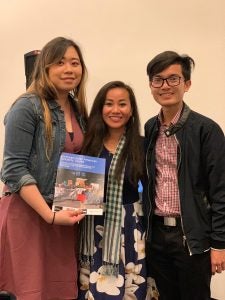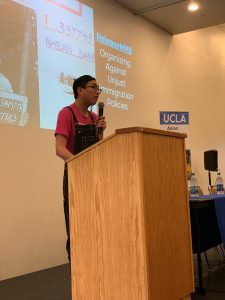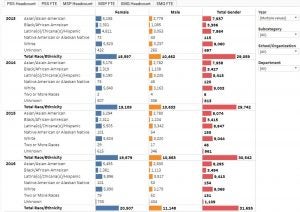The Office of Equity, Diversity and Inclusion partners with faculty, staff, and student organizations to provide programming that advances our mission of building equity for all. Below, please find some featured examples of EDI-sponsored programming for the 2018-2019 academic year.
Please find our previous EDI Funding Request Highlights below:
2016-2017 EDI Funding Request Highlights
2018-2019 Summary:
For the academic year of 2018-2019, the Office of Equity, Diversity and Inclusion awarded 114 total applications from student, faculty, and staff applicants.
Please find the final breakdown of awards below:
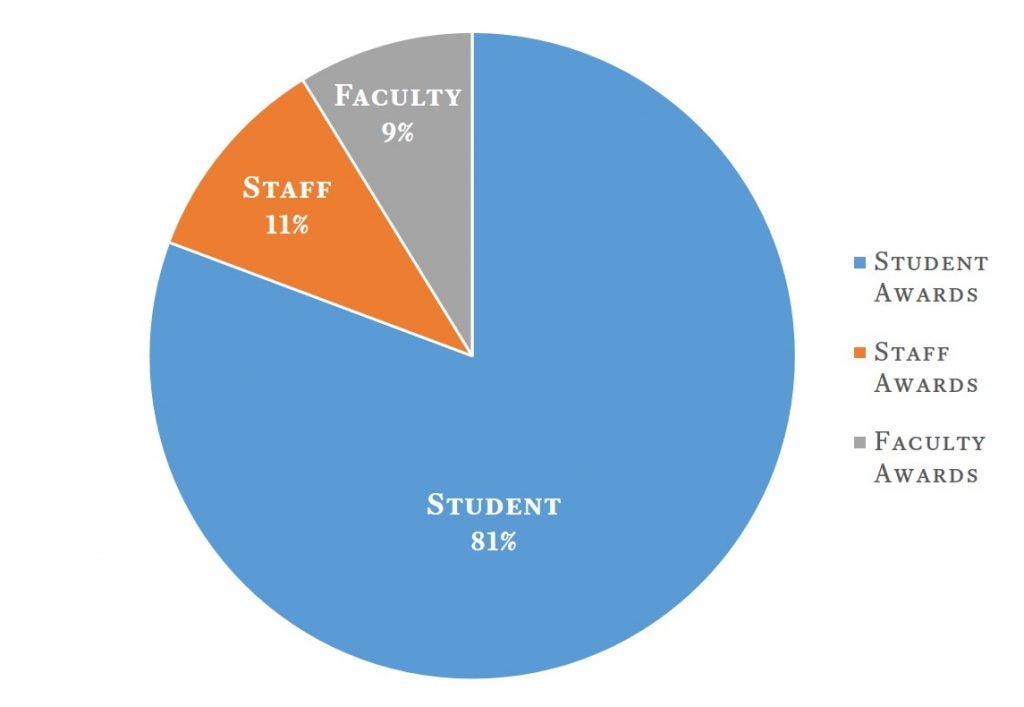
2018-2019 Highlights:
Ethnic & Indigenous Studies Welcome 2018
➡ Submission by Kristine Jan Espinoza (Undergraduate & Graduate Advisor, UCLA Asian American Studies Department)
➡ Photography by Lan Nguyen (MA Student, Class of 2019, UCLA Asian American Studies)
➡ Flyer design by Josephine Ong (MA Student, Class of 2019, UCLA Asian American Studies)
Date: October 1, 2018
Description: The 2nd Ethnic and Indigenous Studies Welcome gathered ethnic and indigenous studies academic units, organized research units, affiliated identity student groups, and, another group added this year, student affairs units, together to ring in the 2018-19 academic year. Just as it had done last year, the welcome not only (re)connected colleagues and students; this Welcome created a space to honor the histories of advocacy and struggle that led to the creation of the ethnic and indigenous studies units at UCLA. Welcoming remarks were made by the Dean of UCLA Social Sciences, Professor Darnell Hunt, Institute of American Cultures Vice Provost, Professor David Yoo, the Director of UCLA Alumni Diversity Programs, Patricia Châu Nguyễn, and respective chairs of the academic units, Professor Eric Avila (César E. Chávez Department of Chicana and Chicano Studies), Professor Victor Bascara (Asian American Studies Department), Professor Marcus Hunter (Department of African American Studies), Professor Mishuana Goeman (American Indian Studies Interdepartmental Program), and Professor Elizabeth Marchant (Department of Gender Studies).
Attendance:
- Approximately 500 people attended the event (faculty, students, and staff)
Feedback from the Event:
- “Just as it happened last year, it was an incredible moment to share — and it was great to share the stage with the other staff advisors as emcees.”
- “This year’s welcome event intentionally expanded to include the Department of Gender Studies, LGBT Campus Resource Center, and, again, Labor and Workplace Studies. Especially as this is a collectively strategy of reaching students early and engaging current students, it serves the university, at large, to expose students to the great work being done campus-wide by units not usually highlighted.”
- “Refreshments, music, raffle giveaways, good cheer, and hopeful spirits filled the air once again…”
- “Being surrounded by so many people who looked like me and hearing about the great work other communities were doing on campus.”
- “Seeing the range of exciting work” and the opportunity to “connect with others who are interested in Ethnic studies”.
Participating Organizations:
- Academic Teaching Units: American Indian Studies Interdepartmental Program, Asian American Studies Department, César E. Chávez Department of Chicana and Chicano Studies, Department of African American Studies, Department of Gender Studies, Labor and Workplace Studies
- Organized Research Units: American Indian Studies Center, Asian American Studies Center, Chicano Studies Research Center, Institute of American Cultures, Ralph J. Bunche Center for African American Studies
- Affiliated University Units: UCLA Alumni Diversity Programs, LGBT Campus Resource Center
- Student Groups and Other Research Groups: American Indian Student Association, Culture and Anxiety Lab for Mental Health Advances, MEChA de UCLA, Pacific Islands Student Association, Samahang Pulipino
Additional Sponsors: UCLA Office of Equity, Diversity and Inclusion, UCLA Alumni Diversity Programs, Dean of UCLA Social Sciences, Asian American Studies Department, Institute of American Cultures, Asian American Studies Center, Labor Studies/Institute for Research on Labor and Employment, Department of African American Studies, César E. Chávez Department of Chicana and Chicano Studies, Ralph J. Bunche Center for African American Studies, American Indian Studies Interdepartmental Program, Department of Gender Studies
3rd Annual Women’s March: Truth To Power
➡ Submission by Sharon Yuen (Internal Director, UCLA Asian Pacific Coalition)
Date: January 19, 2019
Description: Asian Pacific Coalition leadership and staff, along with active member organizations, attended the 3rd Annual Women’s March: Truth to Power. The aim of this program was to bring awareness to the significance of women, specifically Asian Pacific Islander Desi American (APIDA) women and women of other communities of color, in the United States and history.
Participation:
- Approximately 42 students attended
Feedback from the Event:
- “[It] was empowering to attend the March with other people of color.”
- “[I]t seemed impactful that we all came together to fight against an issue faced by all of us despite our ethnic backgrounds.”
- “[In the post-event] discussion, [attendees] remarked that it was one of their favorite aspects of this event.”
Alternative Narratives in Israel Art: Gender, Identity & Belonging
➡ Submission by Maura Resnick (Deputy Director, UCLA Y&S Nazarian Center for Israel Studies)
Date: February 19, 2019
Description: The program included academics and artists exploring issues of gender (feminism/masculinity/transgender), identity (Palestinian, Mizrahi, immigrant), and inclusion-exclusion in Israeli society, as reflected through art. It delved deeply into these issues to understand the multiple identities and varieties of experience – Jewish, Palestinian, immigrant, female, male, LGBTQ – which are at once unique and universal. The program included a presentation of artworks (slides and video) and discussion with a distinguished art historian, curator and three diverse Israeli artists: Palestinian-Israeli artist Raida Adon; transgender artist Roey Victoria Heifetz, and Russian-Israeli artist Zoya Cherkassy.
Participation:
- Approximately 85 people attended (students, staff, faculty, and UCLA alumni)
Feedback from the Event:
- “The program was very successful, based on the number and diversity of students and faculty who attended, from departments including art, anthropology, comparative literature, education, sociology and world arts & cultures.”
- “There’s no doubt [the event organizers] brought in some of the more intriguing contemporary voices of Israeli art – the cutting edge. The artists and the moderator touched on complex issues respectfully and yet without sidestepping the complexity of it all.”
- “The symposium was an innovative program in concept exploring contemporary Israeli art from
perspectives of otherness and belonging and how the artists and their artistic production reflect the personal, social and political realities of that tension.” - “Because it wasn’t some straight forward program just highlighting or show and tell on what is new in Israeli art, it managed to find profound parallels with global issues all societies are grappling with today.”
Southeast Asian Deportation Forum
➡ Submission by Jason Vu (Community Outreach Coordinator, Asian Pacific Coalition)
Date: May 23, 2019
Description: This program centered on the voices of Southeast Asian refugees who are facing deportation and their loved ones who are advocating to resist deportation. The Forum discussed topics such as U.S. involvement in Southeast Asia, the refugee resettlement process, the criminalization of refugees, and racist policies that lead to their deportations. Finally, the Forum highlighted the resilience and activism of Southeast Asian Americans in challenging these unjust policies.
Participation:
- Approximately 300 people attended (students, staff, faculty, and community members)
Feedback from the Event:
- “Overall, [the] event was an amazing success!”
- “[The] program succeeded in raising awareness on the issue of SEA Deportation in our campus community based on the number of attendees that came to our event and engaged with the content of the forum.”

